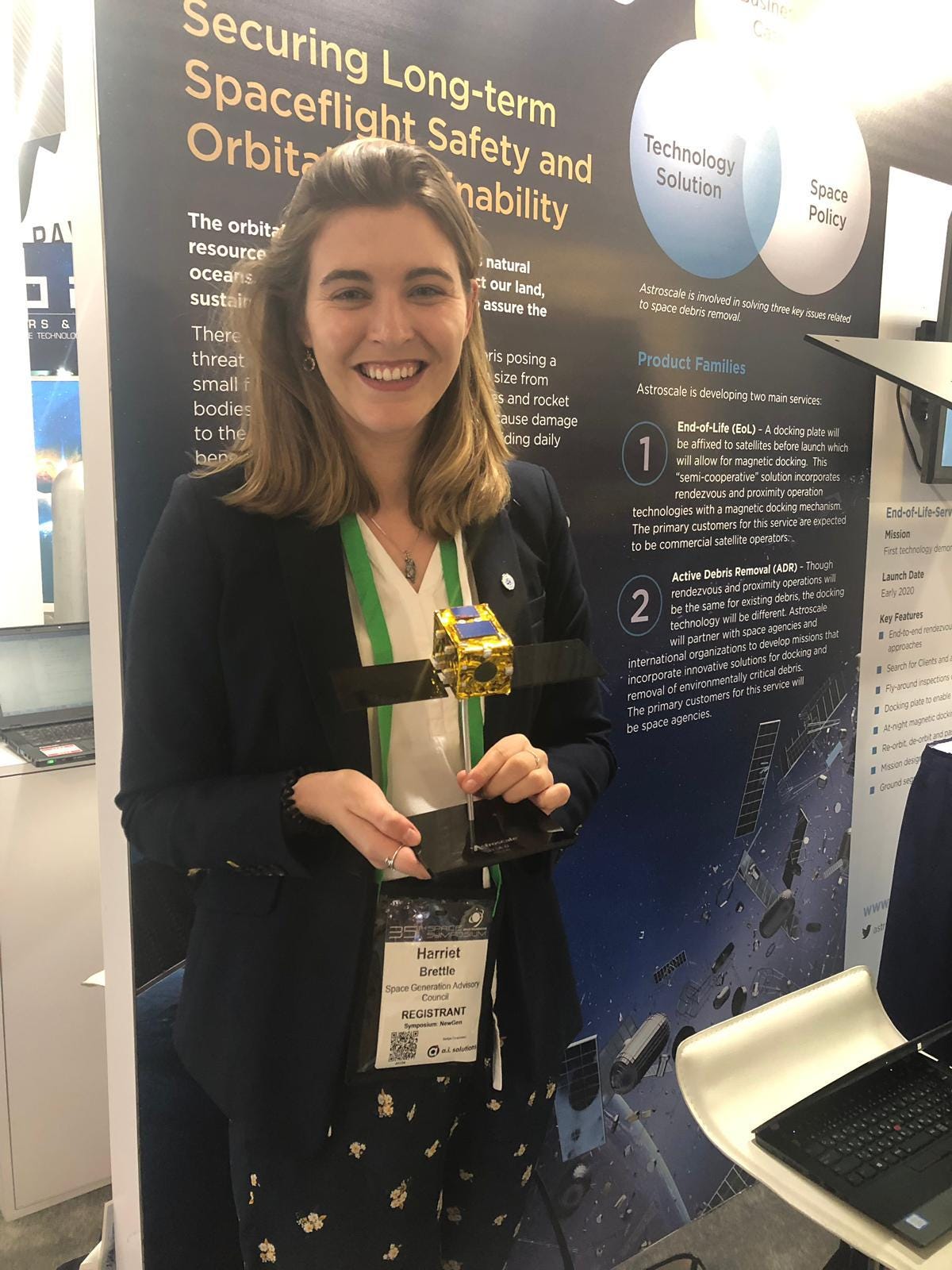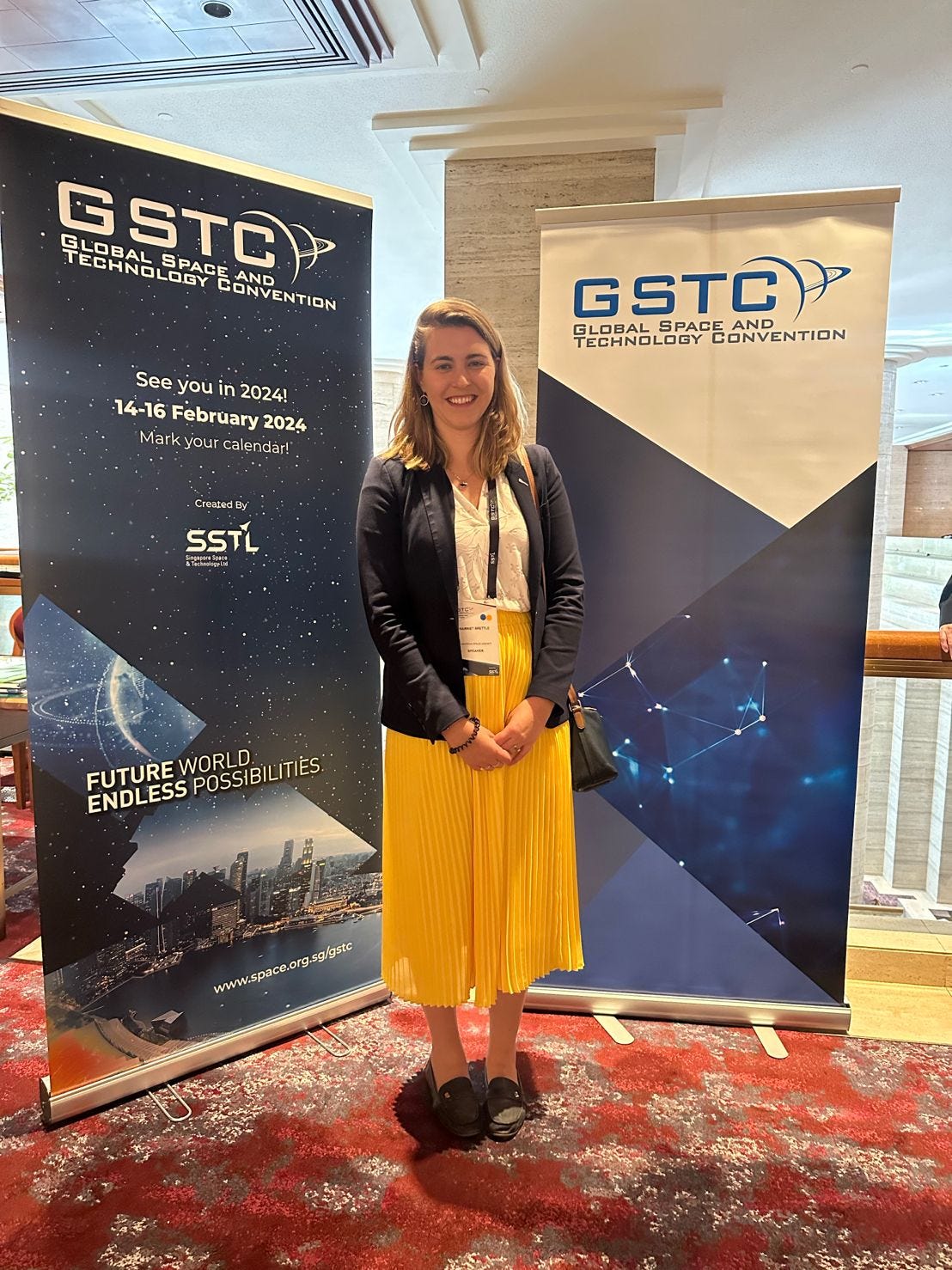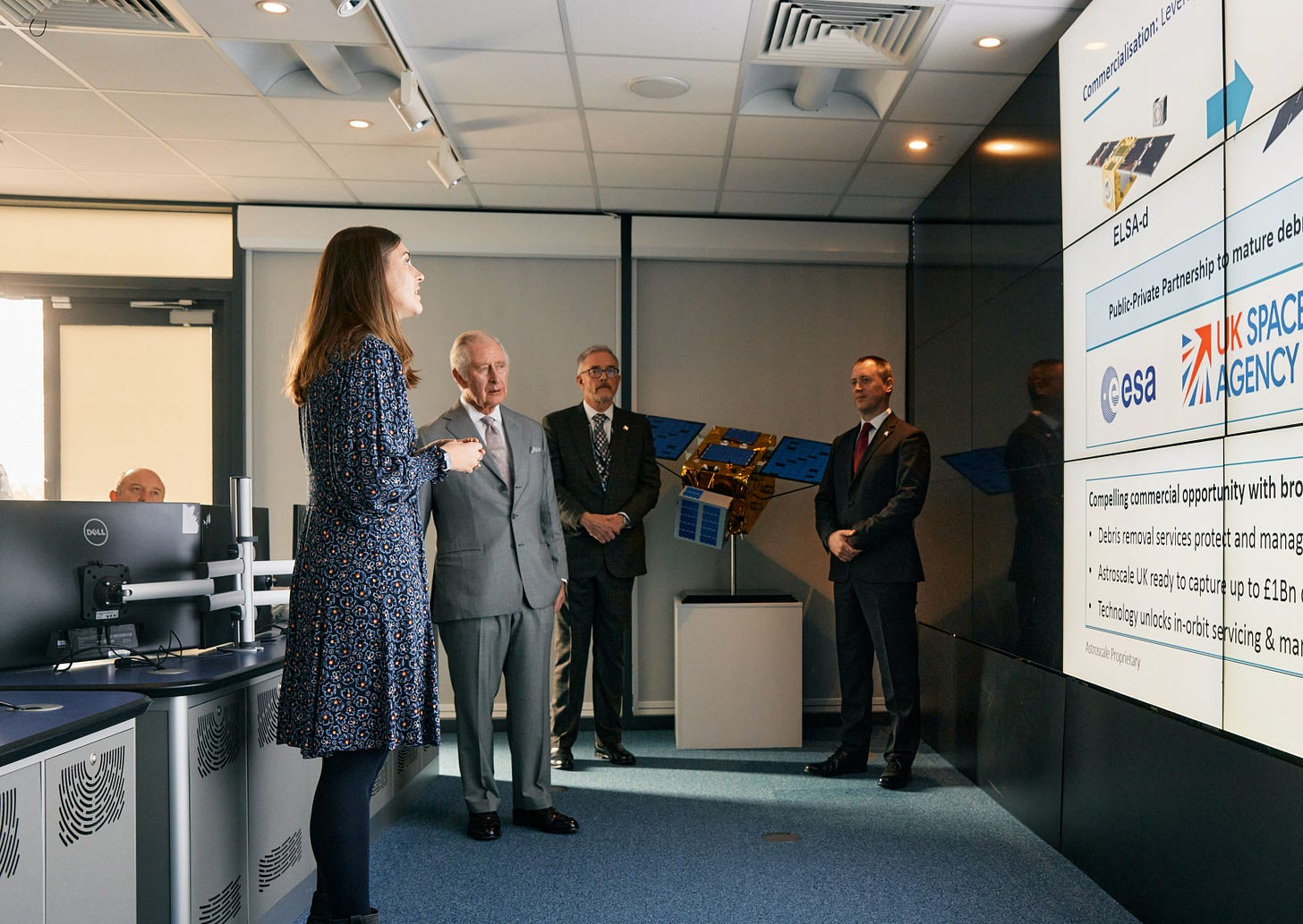Spotlight: Harriet Brettle – Head of Market Analysis and Business Intelligence at ESA’s Connectivity and Secure Communications
From finance to space, from startup to ESA, even presenting on the subject of space to King Charles – explore Harriet's odyssey, seeing her space zeal as her guiding compass.
Issue No 33. Subscribers 5615.
In one of our previous articles, we emphasized that you don't need to be an engineer to join the space industry. This week, we had the pleasure of speaking with Harriet Brettle, who transitioned into space technology from a finance background. Read her inspiring story and remember, your current role is not what defines you; it's where you aspire to be.
Harriet Brettle serves as the Head of Market Analysis and Business Intelligence at the European Space Agency (ESA) within the Telecommunications & Integrated Applications (TIA) directorate. In her capacity, Harriet oversees the analysis of market trends and opportunities related to satellite communications and space-based solutions. Before joining ESA, she held the position of Head of Business Analysis at Astroscale and presided as Chair of the Space Generation Advisory Council. Possessing a strong background in finance, coupled with degrees in planetary science and mathematics, Harriet is deeply committed to fostering commercial sustainability and exploring emerging market prospects within the space industry.
Could you please describe your current role at the European Space Agency (ESA)?
I work as Head of Market Analysis and Business Intelligence within the newly named Connectivity and Secure Communications (CSC) of ESA. It’s a really dynamic time for the satellite communications industry, with evolving business strategies, the emergence of new actors, shifting user demands, and disruptive technologies driving a huge amount of change. My role is to analyze the satellite communications market, understand the trends, opportunities, and challenges for the European satellite communications industry, and use this to support strategic decision-making. I also work to evaluate the socio-economic impact of our programmes which demonstrate the value and benefit that ESA brings to the European space industry and society at large. I feel very fortunate to work on interesting and varied topics with great people!
What inspired you to switch from a career in finance to the space industry, after having worked at the Bank of England and the Federal Reserve?
That’s a great question! I had done a maths degree and upon graduation had no idea what I wanted to do. I'd always loved space but didn't realize there was more to the industry than being a rocket scientist or astronaut. I found myself working at the Bank of England and had an amazing opportunity to do a secondment at the Federal Reserve in New York. During my time there, I rediscovered my love of space, spending evenings at the planetarium and attending public stargazing sessions. Whilst I enjoyed many aspects of my day job, I realized I was still looking for a career where I was truly passionate about the underlying industry. After I came back to the UK, I started evening classes in astrophysics. At first, it was just to learn something new that I found interesting, but I quickly realized it was what I wanted to do full-time.
For those looking to transition into the space industry, what recommendations or guidance would you provide?
When I decided to leave finance, I threw myself into a whole host of space organizations, from volunteering with the Planetary Society to becoming an active member of the Space Generation Advisory Council (SGAC). It was through these experiences that I built a better understanding of the space sector and a network through which I found my first space job.
Changing your career path can really be difficult; it takes time and effort to build up the relevant skills and show that your existing experience is translatable. Don't be afraid to reach out to people and ask for help; the space industry is a friendly community!
My two main pieces of advice are [1] embrace the value your perspective can bring to the space industry and [2] start getting involved in the space community!
The space industry needs a whole host of different skill sets, many of which can be found in other sectors. It took me a while before I really embraced my finance background, but I’ve found my past experiences to be really helpful in my space career to date.
There are so many ways to get involved in the space community and it’s not too late to get involved! In 2019, I co-founded the London Space Network which brings together 100+ people once a month to connect, network, and build community. There are now informal space networks in cities around the world and plenty of space-related events that can be a great place to start.
You previously worked for a space technology startup, Astroscale, before joining ESA. How does your experience differ, and how has it helped you grow professionally?
I really thrive on working in dynamic environments which challenge me in different ways and I’m sure it comes as no surprise that working in a small startup and a large space agency are quite different!
On the startup side, I really enjoyed the opportunity to build from the ground up and work at the intersection between engineering, policy, and business, whilst growing within the role as the company expanded.
At ESA, I’ve learned so much in my first year already! I really love having the opportunity to have a broader view of the satellite communications sector, working alongside experts in numerous fields, and being part of a larger mission.
As a former Chair of the Space Generation Advisory Council, could you please elaborate on this organization and how our readers could benefit from engaging with it?
For those aged 35 and under, I can’t recommend the Space Generation Advisory Council (SGAC) enough! SGAC is an international non-profit that connects students and young professionals to the wider space community. SGAC was incredible as it gave me a global network of people around the world who shared my passion for working in the space industry. Through volunteering experiences, I built up skills and knowledge that I wouldn't have had otherwise, meaning that I could hit the ground running when I started my first job in the space industry. There are many different ways to engage with SGAC; whether it is attending events, benefiting from scholarships, volunteering in leadership positions, contributing to project groups or developing policy positions representing the next generation.

What is your perspective on the significance of sustainability, as someone who has served on the steering board of the Global Network of Sustainability in Space? Furthermore, what message or call to action would you like to convey to our readers?
Environmental sustainability is critical for any industry; space is no exception, but it also includes an additional element when thinking about the sustainability of the orbital environment too. I co-wrote an op-ed in Space News on this a few years back and the points still ring true!
Thank you, Harriet, for such an inspiring conversation!
At Space Ambition, we wholeheartedly embrace Harriet's passion for space exploration and her enthusiasm for networking and collaboration. Remember, the space industry thrives on talent, and it needs you! We organize in-person space events worldwide. If you're interested in hosting a local meetup in your city, don't hesitate to get in touch with us at hello@spaceambition.org. We would be delighted to assist you throughout your journey.











This article and its main character shows that the space industry is becoming an important part of the global economy at the present time. Competencies and skills acquired in another field after a certain period of time (one and a half years) can help in the space field. Obviously, in the near future we will see the divergence of economic sectors and the active migration of specialists to new industries.